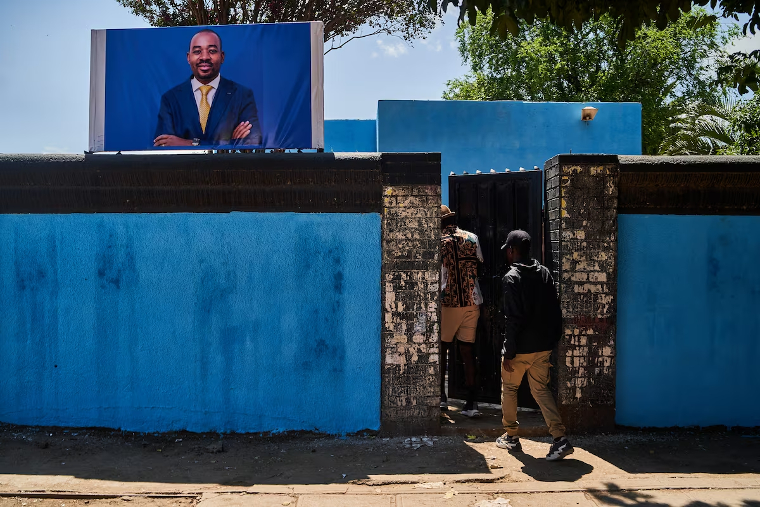Tshabangu said he had “grassroots support” in the CCC, and he accused Chamisa of feigning ignorance of him. “He doesn’t even pronounce my name properly,” he complained. “They’re carrying a narrative that I’m an imposter.”
The opposition endured a series of similar splits in the past, when it was called the Movement for Democratic Change. The party fragmented in 2005 and again in 2018. Dissidents quit the party, lesser-known politicians claimed the leadership, repeated court battles ensued and new parties were formed under new names – with Tshabangu playing a behind-the-scenes role in some of these splits.
When the CCC was created in 2022, it lacked a formal constitution or internal structures, in an attempt to deter infiltrators. Chamisa called it a deliberate policy of “strategic ambiguity”. But the move backfired. In his takeover bid last year, Tshabangu cited the same ambiguity to explain how he could hold a senior post in the party without anyone seeming to know.
Late last month, after failing to fend off the Tshabangu takeover, Chamisa made a surprise announcement: he abandoned CCC and resigned as leader of the party.
“CCC has, to all intents and purposes, been criminally handed over to ZANU-PF,” he said in his announcement.
“This is a systematic and deliberate disenfranchisement campaign,” he said. “We are being thrown into a river with hungry crocodiles. We need to extricate ourselves from the shenanigans. I will have nothing to do with sewer-pond politics.”
Markham agonised about whether to follow Chamisa in disavowing the party. He didn’t want to leave his constituents voiceless in Parliament – but he also saw how the national assembly was increasingly dominated by the ruling party, with only token consultations at brief meetings on key issues such as the national budget.
After much soul-searching, he decided to resign. “The democratic space in Parliament has been shut down completely,” he said in a statement to his constituents.
In parliamentary sessions in recent weeks, the remaining CCC members have been subdued and gloomy, while ZANU-PF members have been exultant, sometimes mocking their opponents.
Some rank-and-file CCC loyalists want Chamisa to adopt the same tough tactics that ZANU-PF has used. “Chamisa needs to stop being so soft,” said Livias Jomisi, a 61-year-old resident of Mbare township in Harare.
“He needs to fight, the same way the ruling party has employed all those dirty infiltration tactics against the opposition over the past decades.”
Desmond Sharukai, a human-rights activist and long-time opposition supporter, says he is losing hope in elections as the vehicle for change, although he still supports Chamisa. “He should adopt a radical, confrontational approach to ZANU-PF. The days of wearing designer suits and shiny neck ties are over. It should be time for brazen action.”
Many CCC supporters expect Chamisa to create a new opposition movement. Thousands have already rallied in support of him, wearing blue shirts, which they believe will be the colour of his new party.
“I will follow Chamisa wherever he goes,” said 42-year-old Lucia Radzokota, who suffered injuries from a beating by ZANU-PF supporters when she campaigned for CCC last year.
Many other Zimbabweans simply want any political shift that might create jobs in the nearly collapsed economy. “Young people like me just want change,” said 26-year-old Malcolm Gandiwa, who has been unemployed since completing his university degree in 2021.
To survive, he sells cigarettes and phone chargers at a bus terminal in Harare. “This doesn’t make sense at all,” he said. “And there are many like me.”- The Globe and Mail
(285 VIEWS)


